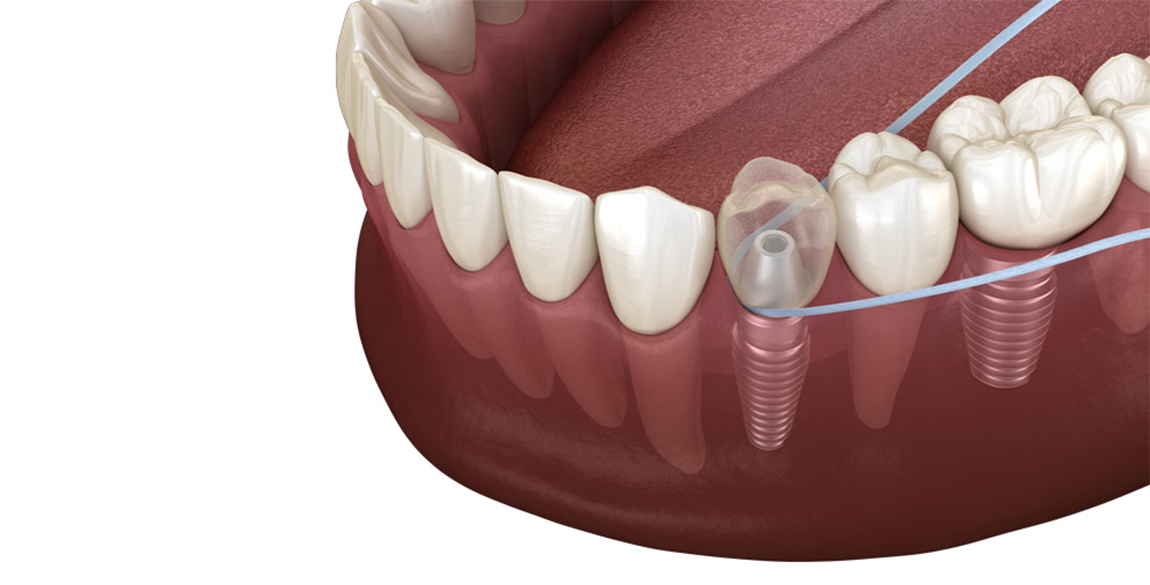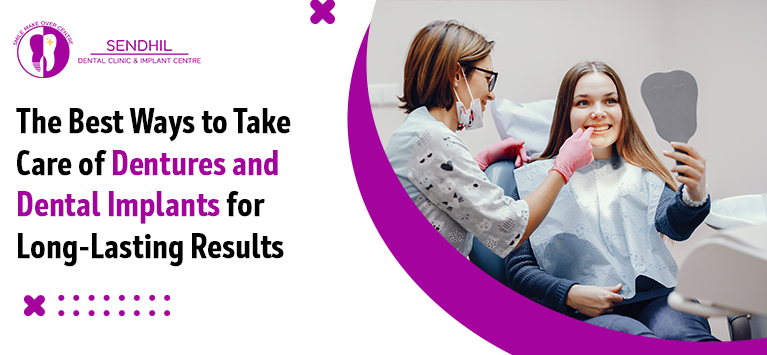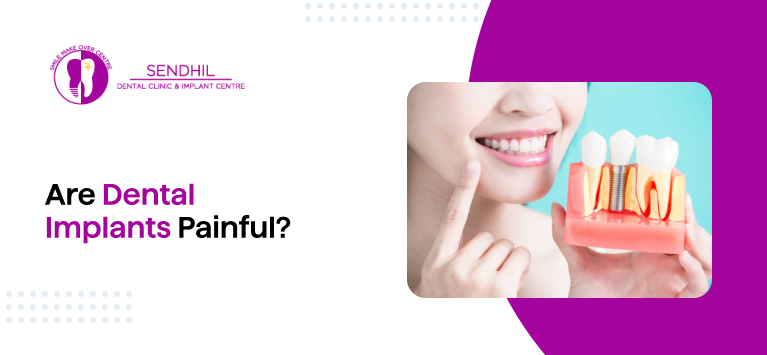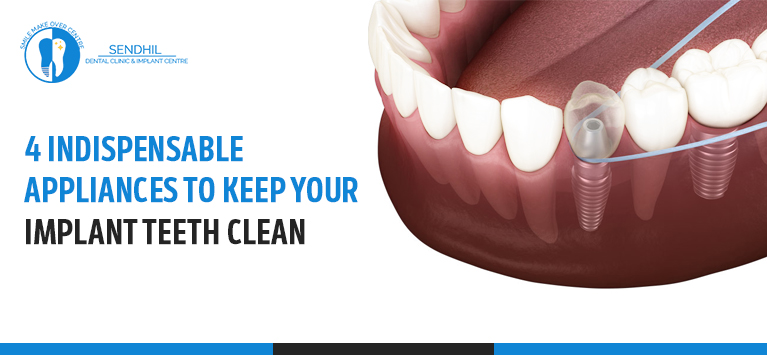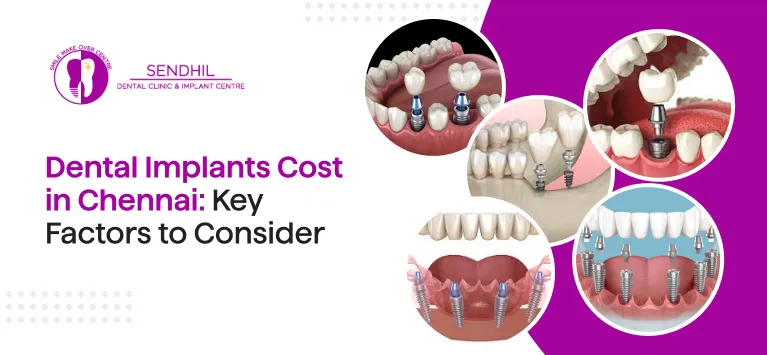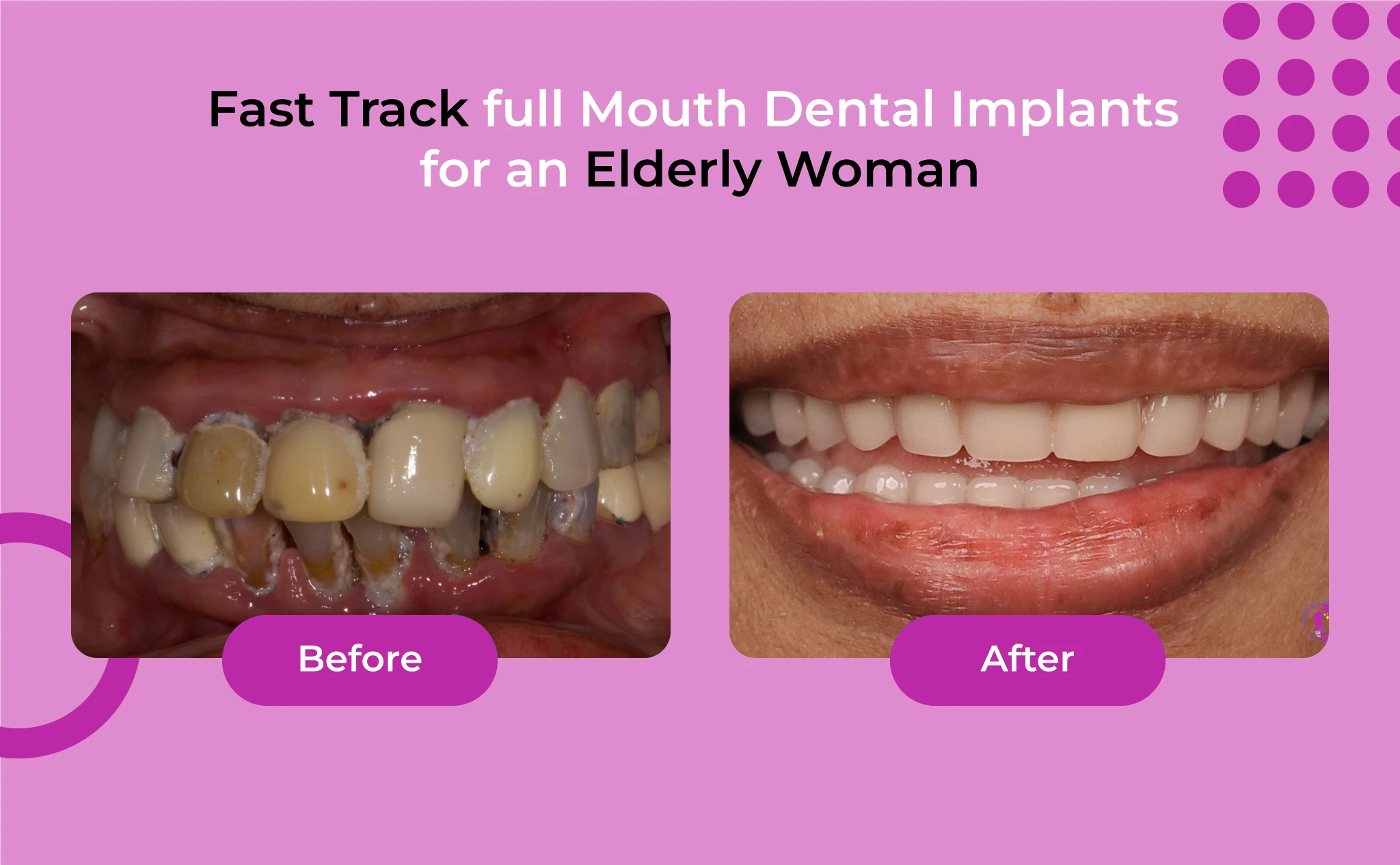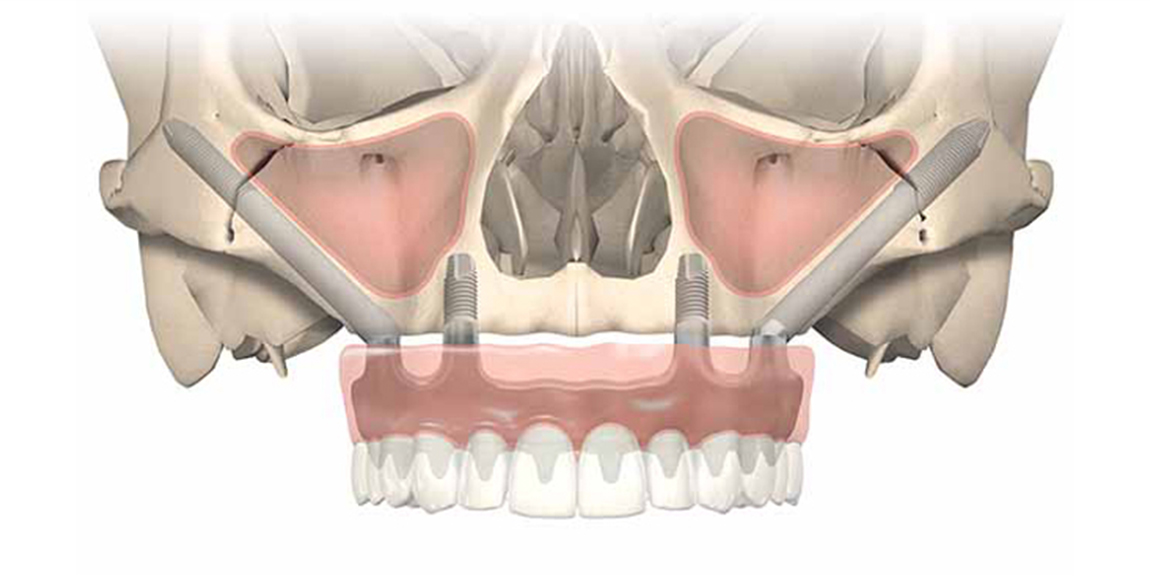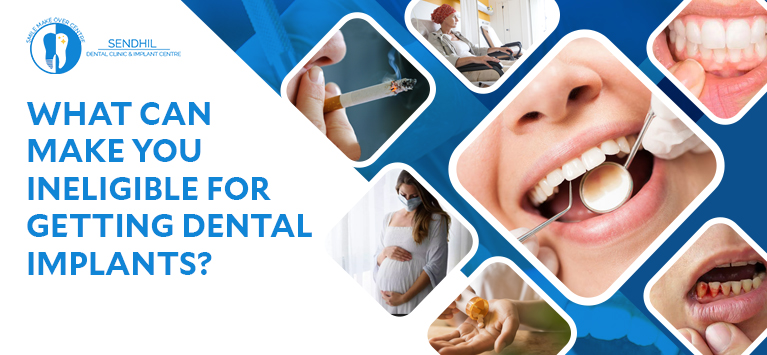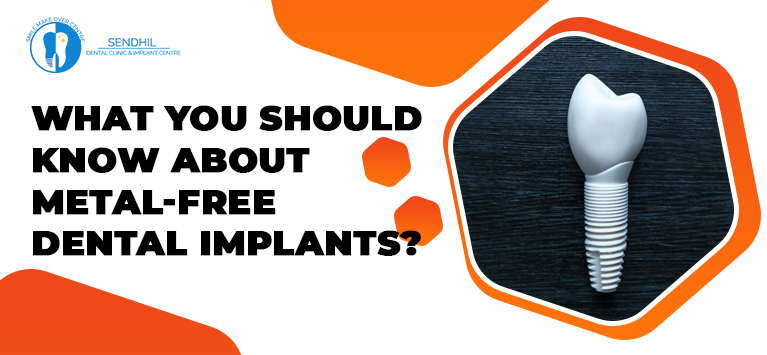
What you should know about metal-free dental implants?
Implant dentistry is the standard solution to replace missing teeth. Unlike other solutions, an implant tooth can rehabilitate the missing tooth along with its root. It is linked to a plethora of advantages – preserve the bone, prevent facial deformation (due to bone loss), render the biting strength, etc.
The implants are made up of Titanium which is a medical-grade metal and highly biocompatible. However, it causes allergic reactions for some people. Luckily, modern dentistry provides metal-free implants for those people. In this post, Dr. Sendhilnathan has explained the widely used metal-free alternative to titanium implants.
What are the metal-free implants made up of?
The metal-free dental implants are made up of a sturdy material called Zirconia.
Zirconia is a white-colored, naturally occurring substance and is integrated with biocompatible aspects of ceramics. It means the dental implants made up of zirconia are metal-free, biocompatible, and non-corrosive.
The metal-free implants involve single-piece zirconium surface implants that are functionally efficient as the titanium implants. Moreover, it is less prone to Peri-implantitis and other possible infectious conditions that put implants at risk.
In case of aesthetics, the zirconia implants are highly impressive. At times, the dark-colored titanium implants show grey edges. In contrast, the zirconia can match the natural color of your teeth so that they will not exhibit such dark edges near gum margins.
What are the advantages of metal-free dental crowns?
In simply, the zirconia crowns are aesthetically superior to titanium implants and hold higher stability. Here are some other reasons why implantologists recommend zirconia crowns nowadays:
- Simple Design – The titanium implants include 2 piece metal surfaces connected using a fixation screw. When extensive pressure is applied, the pieces will move slightly and form pockets where oral bacteria can thrive. In the case of zirconia implants, it has a single piece of metal so there are fewer chances of shifting and develop pockets.
- Biocompatibility – Similar to titanium, Zirconium alloys also have superior biocompatibility so that they fuse well with the surrounding bones for the implant teeth to get a strong framework.
- Non-allergic – People with certain bodily disorders have allergic responses to the metals utilized in any therapeutic appliances including implants. Similarly, the metals in implants provoke allergic reactions at times after years of implantation. If you want to stay far away from those allergic reactions, zirconia implants will be the suitable thing for you.
- Corrosion Resistance -Corrosion is inevitable when a metal is placed in a wet environment like the mouth. Corrosion on implants will weaken their stability and cause fractures. Zirconia crowns are free from this drawback. Similarly, Zirconium is a bio-inert material due to which it cannot trigger chemical reactions and will not interfere with the movement of energy.
- Shorter surgery – The procedure of fixing a zirconia implant is the same as the titanium implants but it is less invasive. It means the metal-free implantation involves shorter surgery so that the surgical wounds heal quickly.
Bottom line
The traditional implants fixed with titanium posts are well-known for their durability but it is not suitable for people with thinner gum tissue or metal sensitivities. It is because they will encounter various difficulties such as inflammation, cracks in implants, bleeding, etc as a consequence of the metal’s allergic response.
If you encounter allergic reactions after getting implants, you should prefer zirconia implants to enjoy the full benefits of implant teeth.


